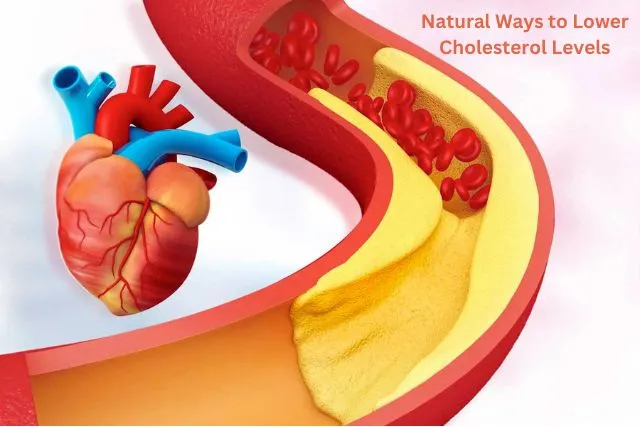15 Benefits of Omega-3 Fatty Acids

Benefits of Omega-3, Many people think that fat is bad for the body. Actually not all fats are harmful but some fats are beneficial for the body. Omega-3 fatty acids are a beneficial type of fat that is basically an unsaturated essential fatty acid. Finding words hard to understand? Let’s make it simple.
This article discusses 15 benefits of omega-3 fatty acids. There are also instructions at the end of the article about which foods contain omega-3 fatty acids and how much to eat. (Hjalmarsdottir, 2023)
Improves eye health
There are three types of omega-3 fatty acids.
- ALA- alpha-linolenic acid
- Eicosapentaenoic acid (EPA- eicosapentaenoic acid)
- DHA- docosahexaenoic acid
Among these, DHA is the most important, which can lead to reduced vision if not consumed in sufficient amounts. On the other hand, those who consume omega-3 fatty acids (DHA) regularly have better vision and reduced risk of macular degeneration. It is one of the leading causes of blindness worldwide, usually in the elderly.
Improving brain health during pregnancy and early life
Pregnant women should eat foods rich in omega-3 fatty acids. It keeps the immune system of the mother’s body healthy and makes various vitamins (A, D, E, K etc.) useful in the body.

Adequate intake of foods rich in omega-3 fatty acids should be consumed during pregnancy and breastfeeding. Because it plays a special role in improving the brain health of the child. (American Pregnancy Association, n.d.)
Reduces the risk of heart disease
In the case of those who regularly consume enough omega-3 fatty acid-rich foods, the level of harmful cholesterol (triglyceride and LDL-low density lipoprotein) in the blood decreases and the amount of good cholesterol (HDL-high density lipoprotein) increases. As a result, the risk of heart attack and stroke is very less.
Helps reduce the risk of metabolic syndrome
Metabolic syndrome refers to a group of diseases associated with excess body weight, particularly abdominal fat. For example: high blood pressure and high levels of harmful cholesterol and sugar in the blood. Regular consumption of foods rich in omega-3 fatty acids helps reduce excess belly fat. As a result, the risk of metabolic syndrome is reduced.
Helps reduce inflammation
When there is an infection or a wound, inflammation is a normal process of the body which is not harmful. But sometimes there is long-term inflammation due to abnormalities in the body, resulting in various complex diseases. For example: heart disease and cancer.
Omega-3 fatty acids help reduce the body’s production of inflammatory molecules. And so to cure and prevent inflammatory diseases should eat foods rich in omega-3 fatty acids.
Beneficial in autoimmune diseases
When any external harmful substances and pathogens enter the body, the immune system attacks it, which is very important for normal and healthy living. But sometimes the immune system mistakenly attacks the body’s healthy cells as enemies, which is called autoimmune disease in medical terms. For example, type-1 diabetes, rheumatoid arthritis, Crohn’s disease, psoriasis, ulcerative colitis, lupus, etc.
Omega-3 fatty acids play a helpful role in the prevention and treatment of autoimmune diseases.
Relief from depression and anxiety
A common mental problem in the world is depression due to which people commit suicide. The hope is that among the 3 types of omega-3 fatty acids, eicosapentaenoic acid (EPA- eicosapentaenoic acid) plays a helpful role in relieving depression. Also, regular consumption of foods rich in omega-3 fatty acids helps to relieve anxiety.
Freedom from mental disorders
People who consume foods rich in omega-3 fatty acids less than they need are more likely to develop various mental disorders. In addition, some studies have shown that omega-3 fatty acids can help treat the symptoms of certain mental illnesses (schizophrenia and bipolar disorder).

One of the behavioral problems in children is ADHD (attention deficit hyperactivity disorder) which results in hyperactivity and lack of attention. Feeding children a diet rich in omega-3 fatty acids can help alleviate ADHD.
May help prevent Alzheimer’s disease
As we age, memory declines, especially with Alzheimer’s disease (memory loss). Studies have shown that omega-3 fatty acids can help reduce the risk of developing the disease and treat early symptoms.
Helps prevent cancer
Some studies have shown that people who consume a diet rich in omega-3 fatty acids have up to a 55 percent lower risk of developing colon cancer. Also helps reduce the risk of prostate cancer in men and breast cancer in women. But cans However, more research is needed to confirm the role of omega-3 fatty acids in cancer prevention.
Helps reduce asthma in children
Children-Asthma-Asthma
Asthma is a lung disease with symptoms like cough, shortness of breath, wheezing in the chest. Asthma is a chronic disease that continues throughout life and sometimes leads to complications that can lead to death.
Also, there is no cure for asthma.
The hope is that some studies have shown that pregnant mothers who eat foods rich in omega-3 fatty acids reduce the risk of developing asthma in their children.
Helps reduce fat in the liver
Non-Alcoholic Fatty Liver Disease (NAFLD) is a liver disease that causes the accumulation of fat in the liver and can lead to complications such as liver cirrhosis. Eating foods rich in omega-3 fatty acids helps reduce fat in the liver.
May improve bone and joint health
Consuming foods rich in omega-3 fatty acids increases bone density and helps prevent osteoporosis. It also helps to relieve pain in various joints of the body caused by arthritis.
Helps improve sleep
There is no substitute for good sleep for healthy living. Sleep problems increase the risk of obesity, depression and diabetes. Omega-3 fatty acids relieve sleep problems in everyone, young and old. Especially the DHA type of omega-3 fatty acid can increase the release of melatonin which helps improve sleep.
May improve skin health
Regular consumption of foods rich in omega-3 fatty acids can provide skin benefits such as:
- Maintains proper skin moisture
- Prevents some skin diseases
- Reduces acne proneness
It helps to heal the skin if it is damaged by the heat of the sun
Foods rich in omega-3 fatty acids and dietary guidelines
Fish is the best source of omega-3 fatty acids. All types of fish contain more or less of these fatty acids that are beneficial for the body. Marine fish contain the highest amount. Apart from fish, other foods that contain omega-3 fatty acids are:
- the egg
- the milk
- nuts
- linseed
- Soybean
- black cumin
- Chia seed
- Beans
- green vegetables
According to the US National Institutes of Health, a person should consume at least 1.1 to 1.6 grams of omega-3 fatty acids per day. And so the American Heart Association has given instructions to eat fish at least 2 days a week. (American Heart Association, 2022)
What are the main benefits of omega-3 fatty acid?
Omega-3 fatty acids, often hailed as essential nutrients, play a crucial role in promoting overall well-being. These polyunsaturated fats, commonly found in fatty fish like salmon, flaxseeds, and walnuts, offer a myriad of health benefits. One primary advantage is their positive impact on heart health. Omega-3s are known to lower blood triglyceride levels, reduce inflammation, and decrease the risk of heart disease. Beyond cardiovascular benefits, these fatty acids are a boon for brain health, influencing cognitive function and potentially lowering the risk of cognitive decline as we age.

Furthermore, omega-3s exhibit anti-inflammatory properties that extend to joint health, making them beneficial for individuals dealing with arthritis or joint pain. Expectant mothers also stand to gain from omega-3 supplementation, as it contributes to the healthy development of the fetus’s brain and eyes. The anti-depressive effects of these fats are gaining attention, showcasing their potential in mental health. In summary, incorporating omega-3 fatty acids into your diet can yield a spectrum of advantages, spanning from cardiovascular and cognitive well-being to joint and mental health.
Is it good to take a omega-3 everyday?
Incorporating omega-3 fatty acids into your daily routine can be a game-changer for your overall well-being. These essential fats play a crucial role in supporting various bodily functions, from promoting heart health to boosting cognitive function. While the question of whether it’s good to take omega-3 every day is commonly asked, the consensus among health experts is a resounding yes. Omega-3s, found in fatty fish, flaxseeds, and walnuts, are renowned for their anti-inflammatory properties, which can help alleviate joint pain and stiffness. Additionally, regular intake of omega-3s has been linked to improved mood and mental health, making it a valuable addition to your daily regimen. As these fatty acids are not produced by the body, obtaining them through diet or supplements is essential. So, whether you’re looking to support your cardiovascular system, enhance cognitive function, or simply boost your overall health, making omega-3 a daily habit is a small investment with significant returns for your long-term well-being.
Final Words:
Omega-3 fatty acids are available in the market as capsules or supplements. But eating foods rich in omega-3 fatty acids is better than taking supplements.





